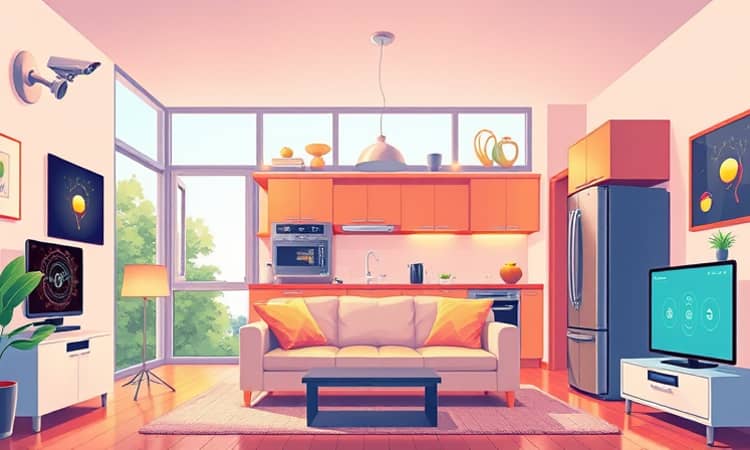In recent years, smart home technology has reshaped the way we live and interact within our homes. As homes become more connected, technology is making our daily lives more convenient, energy-efficient, and secure. With an extensive array of devices and systems available, homeowners can enjoy not only the ease of managing their household but also significant financial and environmental benefits. This article explores the numerous advantages of smart home technology and how it can enhance modern living.
From automated lighting to advanced security systems, the integration of technology into homes is changing our expectations of what a home should be. Embracing these innovations can lead to a more efficient, accessible, and personalized living environment, ultimately resulting in an improved quality of life. Below, we delve into the key benefits of smart home technology.
1. Convenience and Automation
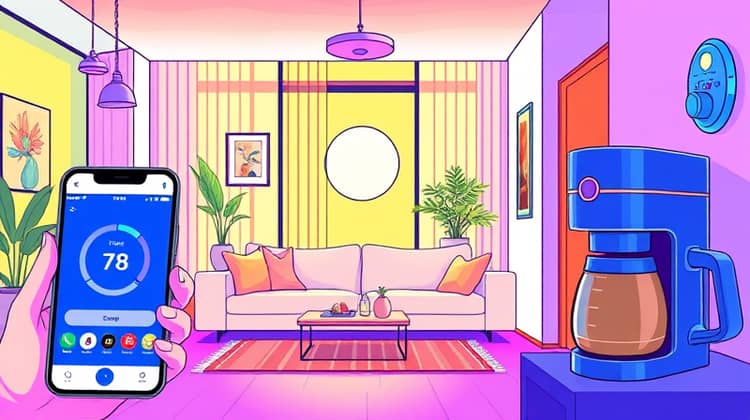
One of the most notable benefits of smart home technology is the added convenience it brings. With smart devices, homeowners can automate daily routines and processes, enabling them to manage their homes from anywhere in the world. Whether it’s adjusting the thermostat from your phone or programming your coffee maker to start brewing before you wake up, convenience is at the forefront of these innovations.
Automation streamlines your life by allowing technology to handle mundane tasks. For example, smart lighting can be programmed to turn on and off at specific times or respond to your presence, ensuring that you never have to walk into a dark room. Similarly, smart locks can enable keyless entry, removing the hassle of searching for lost keys.
Moreover, the integration of voice assistants enables hands-free operation of various devices. With simple voice commands, you can control your thermostat, play music, or even turn on the television, making your home life simpler and more efficient. This level of accessibility ensures that technology enhances rather than complicates daily living.
- Remote control capabilities through smartphones or tablets
- Integration with voice-activated assistants like Amazon Alexa or Google Assistant
- Customized scheduling for all household appliances
2. Increased Energy Efficiency
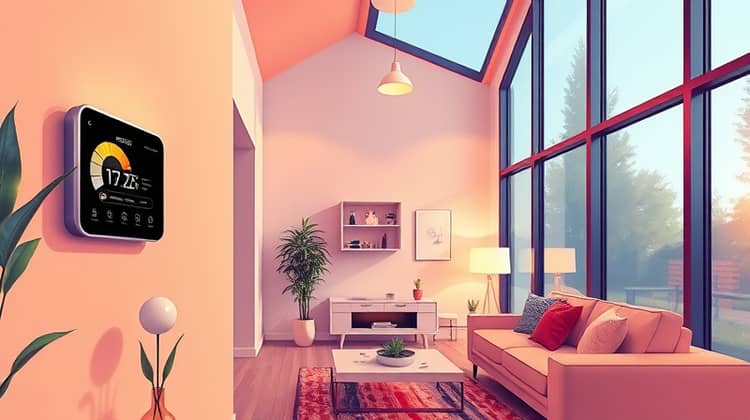
Energy efficiency is a crucial benefit of smart home technology that not only reduces utility bills but also contributes to a more sustainable future. Smart devices allow homeowners to monitor and control energy consumption in real-time, making it easier to identify ways to save on energy costs. For example, smart thermostats can learn your preferences and adjust heating or cooling accordingly, ensuring that energy is not wasted when it’s unnecessary.
Additionally, smart lighting systems are designed to use LED bulbs that consume significantly less energy than traditional lighting. These systems can also be programmed to turn off when no one is present in the room, minimizing energy waste.
By being able to monitor energy usage patterns, homeowners can make informed decisions that lead to greater energy conservation. As a result, investing in smart home technology equates to long-term savings and environmental benefits.
- Smart thermostats that learn and adapt to your habits
- Smart meters for real-time energy monitoring
- Energy-efficient smart lighting and appliances
The cumulative effect of these energy-efficient devices can bring significant cost savings over time. Not only do they contribute to lower monthly bills, but they also reduce the overall carbon footprint of the household, promoting a greener lifestyle.
Moreover, many utility companies offer incentives for customers who choose energy-efficient home upgrades, further enhancing the financial benefits of smart technology. This integration of convenience, savings, and sustainability makes smart homes an attractive investment for the average homeowner.
3. Enhanced Security
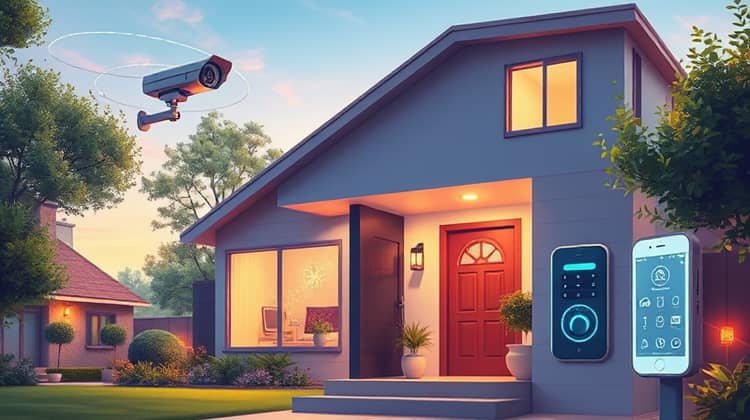
Home security is paramount for everyone, and smart home technology provides invaluable features that enhance safety and peace of mind. Smart security cameras can be accessed remotely, allowing homeowners to monitor their property in real-time, regardless of their location. With motion detection alerts and 24/7 recording, you can easily keep track of who enters or leaves your home.
In addition, smart locks offer advanced security features that go beyond traditional locks. They allow for customized access codes for family members, guests, and service providers, ensuring that you have complete control over who can enter your home. Many smart locks can also provide notifications when someone enters or exits, adding an extra layer of security.
Another notable component of smart home security is the integration of alarm systems that can be controlled remotely or set up to alert your smartphone in case of unauthorized access. Some systems even have the ability to contact emergency services automatically, providing you with quick assistance when needed.
- Remote monitoring through smart cameras
- Mobile alerts for unauthorized access
- Smart locks with temporary access codes
4. Improved Accessibility
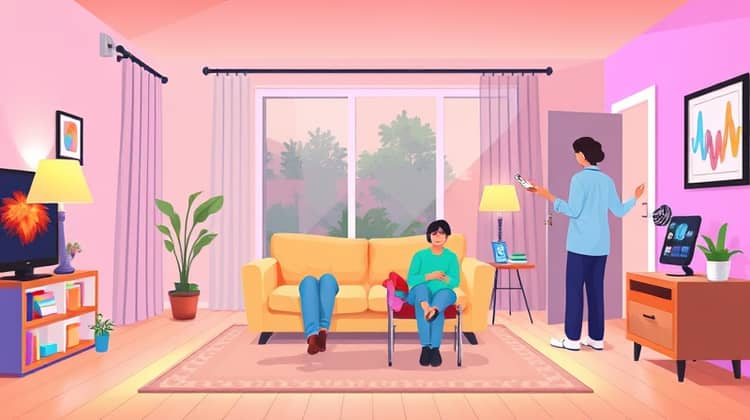
Smart home technology goes beyond convenience by ensuring that homes can be more accessible to individuals with disabilities or mobility issues. For instance, voice-controlled devices allow users with limited mobility to navigate their homes without physical strain. Smart home setups enable lights, doors, and appliances to be controlled seamlessly through voice commands.
In addition to voice control, smart home technology can also facilitate remote accessibility. Caregivers can manage certain aspects of the home environment for individuals who require assistance, ensuring their safety and comfort even from a distance. This newfound independence can have a significantly positive impact on the quality of life for those with disabilities.
Furthermore, smart home technology can be customized to accommodate various needs, ensuring that everyone can enjoy a comfortable and functional living space. From automatic door openers to smart thermostats that provide the ideal temperature, these innovations can enhance accessibility in meaningful ways.
- Voice-controlled devices for easy operation
- Remote management for caregivers
- Customizable smart tech for various accessibility needs
5. Cost Savings
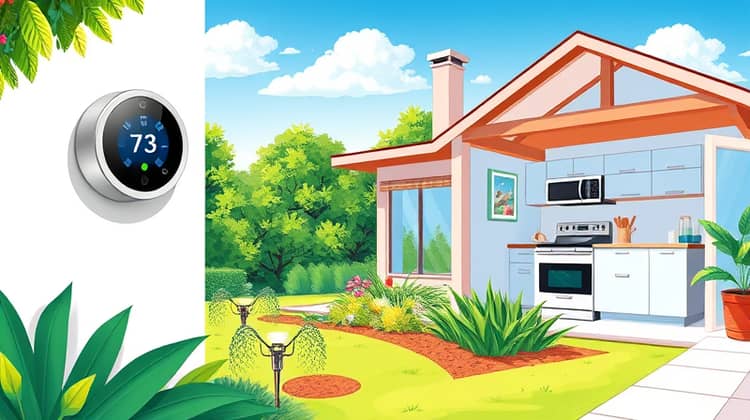
The investment in smart home technology can lead to considerable cost savings in various ways. Precise energy management reduces utility bills, while smart appliances often use less energy compared to traditional models. Moreover, automated systems enable efficient management of resources, allowing you to cut down on unnecessary expenses.
For instance, smart irrigation systems can optimize water usage based on weather forecasts and soil moisture levels, which significantly reduces water bills. In addition, smart thermostats can adjust your home’s temperature when you are away, further contributing to energy savings and decreasing costs.
Moreover, many insurance companies offer discounts for homes equipped with smart security systems, as these technologies reduce the risk of theft, burglary, and damage. Over time, the accumulated savings from lower utility bills and potential insurance discounts can make the upfront investment in smart technology worthwhile.
- Reductions in monthly utility bills
- Incentives and rebates for energy-efficient upgrades
- Insurance discounts for enhanced security features
6. Better Home Management
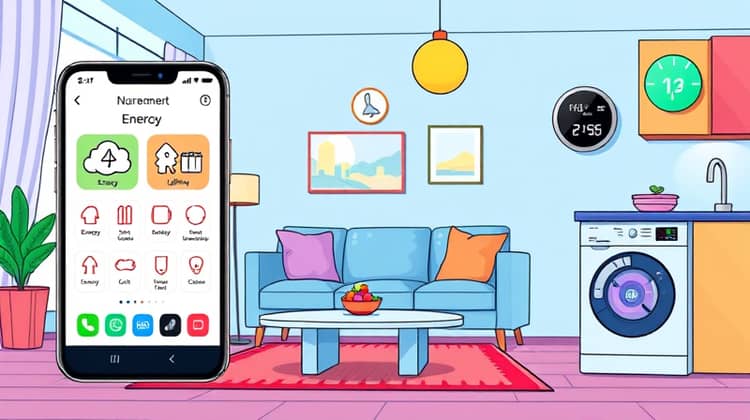
Effective home management is another advantage of smart home technology, which allows for centralized control and monitoring of your home. Homeowners can manage various aspects of their property, from energy usage to security, all from a single app on their smartphones. This level of convenience facilitates more efficient daily routines.
Smart devices often come with scheduling options, enabling users to program when devices should operate. For example, scheduling your dishwasher to run during off-peak hours can help reduce energy costs, while smart lighting can create mood settings that align with your daily activities.
In addition, smart home technology provides analytics that can inform better management decisions. Many systems track usage patterns and provide insights into improvements that can lead to enhanced efficiency and sustainability in home operations.
- Centralized control through mobile applications
- Scheduling capabilities for appliances and lights
- Usage analytics for informed decision-making
7. Customization and Personalization
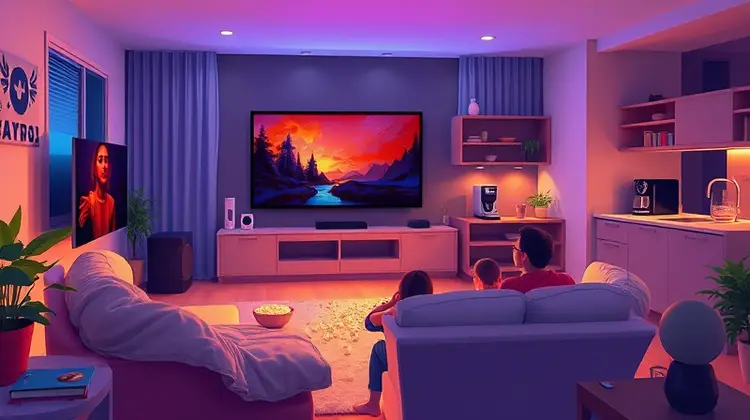
Smart home technology allows homeowners to tailor their environment to suit their specific needs and preferences. This customization ranges from setting specific lighting moods to creating unique schedules for different appliances. Home automation lets you design your living space to reflect your lifestyle, ultimately leading to greater comfort and satisfaction.
For instance, you can personalize your smart home systems to respond to different scenarios. Want to set the perfect ambiance for a family movie night? With a few taps or a voice command, you can dim the lights and adjust the thermostat. Similarly, morning routines can be customized to gradually brighten lights and start your coffee maker just in time for your wake-up call.
Moreover, the ability to integrate various smart devices from different brands allows homeowners to create a cohesive system that caters to their individual needs. This flexibility fosters an enhanced sense of ownership and satisfaction in one’s living environment.
- Personalized settings for lighting, temperature, and appliances
- Ability to create unique schedules for different times of day or activities
- Integration of multiple devices for a cohesive smart home experience
Conclusion
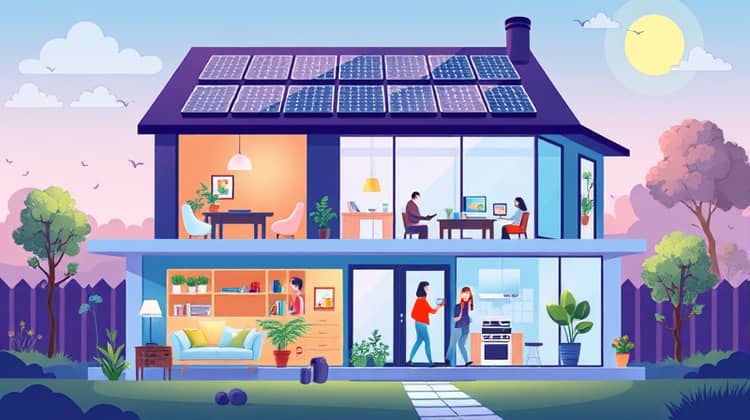
In conclusion, smart home technology offers an impressive array of benefits that enhance the way we live. From increased convenience and energy efficiency to improved security and accessibility, these innovations cater to diverse needs and preferences, making modern homes more adaptable than ever.
As homeowners embrace this technology, they can not only enjoy a greater quality of life but also contribute to a sustainable future. The integration of smart home devices represents not just a trend but a significant step towards an efficient and personalized living experience.

